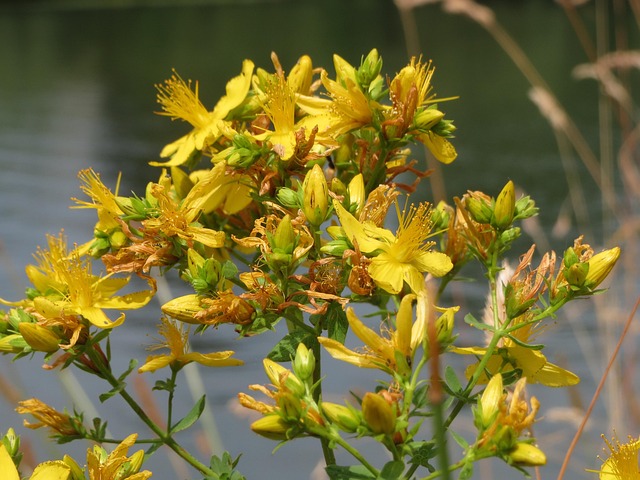The rich tapestry of human tradition is woven with threads of spirituality, nature, and healing. Among these threads, St. John’s Wort occupies a unique niche, holding significance in various religious contexts throughout history. This remarkable herb, traditionally known for its vibrant yellow flowers, is not only a symbol of healing but also a marker of faith and devotion across cultures.
In the realm of ancient beliefs, St. John’s Wort was considered a powerful talisman against evil spirits. Its association with the summer solstice, particularly during the feast of St. John the Baptist, adds layers of meaning to its significance. Early Christians celebrated this day, intertwining their rituals with pagan practices that honored the sun and light, symbolizing rebirth and purification. St. John’s Wort became a spiritual protector, believed to ward off darkness and enhance the light within one’s life.
Traditionally, people would gather the herb at dawn, as it was thought to be most potent during this time. According to folklore, this ritual not only honored St. John but also invited blessings of health and protection from the divine. The herb’s association with healing extended far beyond the physical; it was a symbol of faith and resilience, representing the belief that nature and spirituality were intertwined in sustaining life.
Throughout the centuries, St. John’s Wort has played a role in various religious practices. In medieval times, it was often utilized in herbal remedies prescribed by monks, who viewed the herb as a divine gift for healing mental ailments. The teachings of these ascetic healers emphasized the harmony between the natural world and spiritual well-being, urging their followers to seek healing in both realms.
Interestingly, St. John’s Wort also found a place in folk medicine and rituals beyond Christianity. In many cultures, particularly in Europe, it has been associated with the protective powers of gods and goddesses. For instance, its use in ancient Rome was linked to rituals honoring Apollo, the god of light and healing, further signifying its importance in the spiritual landscape of the time. People believed that carrying the herb or placing it in their homes would ensure protection from misfortune and illness.
Even in contemporary practices, St. John’s Wort endures as a vital herb in herbal medicine and spirituality. Its presence in new age rituals and holistic therapies demonstrates a continuity of ancient beliefs, showing how traditional healing methods have evolved yet remain steeped in spiritual significance. Many individuals today seek St. John’s Wort for its therapeutic benefits, particularly in alleviating symptoms of anxiety and depression—an echo of the ancient practice of finding solace in natural remedies.
Indeed, the blend of health, healing, and spirituality encapsulated by St. John’s Wort reveals a connection that transcends time and place. As we navigate the complexities of modern life, the traditions surrounding this ancient herb remind us of the enduring relationship between our earthly existence and the spiritual dimensions that guide us. By embracing these age-old practices, we not only honor our ancestors but also cultivate a sense of belonging and purpose in a world that increasingly seeks meaning in the natural and the divine.




